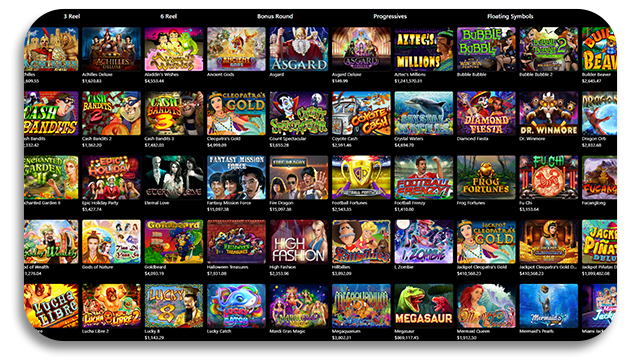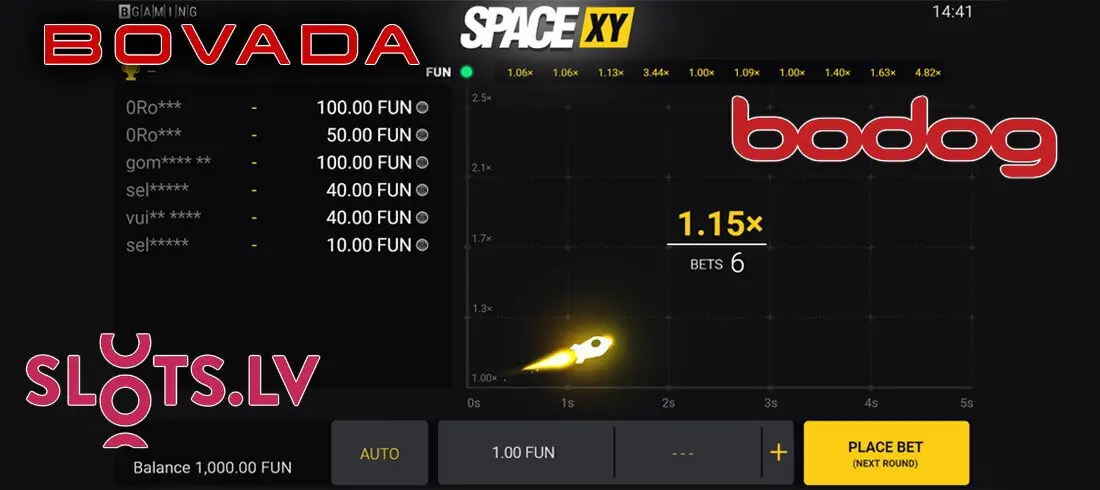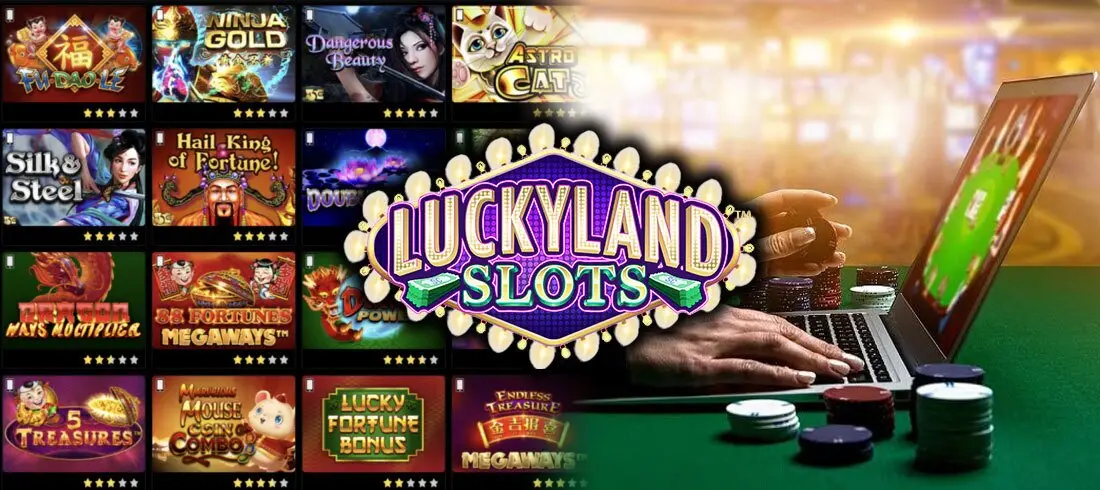How the Numbers Add Up in Slot Machine Games
Real money slot machines seem simple, but some of them are way more complicated than others.
If you want to play slot machines, that’s okay, but I think you can find better, cheaper ways to get the same amount of gambling entertainment than you’d get playing slot machines.
In fact, I think you can do a lot better at the live dealer blackjack tables.
This post examines the numbers and how they add up in slot machine games to make these the most profitable games for the casino.
What’s a Typical Expected Return on a Slot Machine Game (And What Does It Mean in Practical Terms?)
“Expected return” is a percentage that statistically predicts how much of each slot machine bet you’ll get back. In other words, if you’re playing a game with a 93% expected return, you expect to get back 93 cents every time you take a $1 spin.
This number is easier to calculate than you might think. For every possible result in a slot machine game, you multiply the probability of getting that result by the payout for that result. That’s the return for that combination.
Add all those returns together, and you have the total return for the game.
This works with any gambling game, but it’s especially useful when discussing slot machine games.
The expected return for a slot machine game varies dramatically from casino to casino and often from machine to machine. Even machines that are completely identical might have entirely different probabilities set up for getting specific symbols and combinations of symbols.
93% isn’t an unusual expected return for a slot machine game, though. In fact, 93% is pretty good.
How the Grind Affects Your Slot Machine Bankroll
Let’s suppose you go the casino with $500, and you’re going to play that slot machine with the 93% return. (Of course, you don’t know what the return is on a slot machine game most of the time. It’s a rare casino that actually labels them.)
Does this mean that you’ll return home from the casino that night with $435, having lost only $65?
If only it were that simple.
If you play long enough, you’ll probably lose your entire $500.
Here’s why:
You’re not just going to play your initial $500 most of the time. You’ll usually keep putting money in the machine and spinning the reels multiple times. When you bet that money repeatedly, you’re engaged in what’s call “the grind.”
That 7% house edge doesn’t just apply to your overall bankroll. Every time you place a bet on the slot machine, the 7% applies.
Let’s say you’re playing the dollar machines and playing for 3 credits per spin. You’re putting $3 into action on every spin. Let’s also say you’re making 500 spins per hour – not an unusual rate of play for a slots player.
You’re putting $900 into action per hour, even though you only brough $500 to the casino.
7% of $900 is $63.
Play for 8 hours – which is also not unusual for a dedicated slot machine player – and you’ll run through your entire stake.
The Average Hourly Price of Slot Machine Play
Generally, the higher the denomination is on a slot machine, the higher the payback percentage is. After all, the casino wants to maximize how much money it makes from your gambling.
A nickel machine might have a payback percentage (expected return) of 91%.
The high roller room might have a machine where you can bet $100 per spin. The expected return on that game might easily be 97%.
What does this do to the cost per hour of playing – keeping in mind that these are averages?
Assume you make 500 spins per hour on that nickel machine and an average bet of 3 nickels per play, and you’re putting $75 per hour into action. If you lose 9% of that, you’re looking at an hourly cost of $6.75.
If you’re making 500 spins per hour at $100 per spin, though, you’re putting $50,000 per hour into action. Even though you’re only losing 3%, you’re still looking at a major increase in the amount of money you’ll lose on average per hour.
You’re looking at $150 per hour in losses, on average.
Fulfilling the Expected Return
Slot machines aren’t limited to just one way of fulfilling the expected return. Some games pay off more often but have smaller prizes, while other games pay off less often with bigger prizes. They might even have the same expected return.
Gambling experts use the expression “volatility” to describe how the game acts over the long run. If a game pays out often with small payouts, it’s less volatile than a game that pays out less often with big payouts.
In fact, you can use this general rule when choosing a slot machine to play:
The bigger the jackpot is, the more volatile the game is.
For example, a slot machine game with a top jackpot of 1000 coins is going to be less volatile than a game with a top jackpot of 2000 coins.
This means that you’ll lose money faster on the more volatile machine until you see the inevitable and occasional wins. You need a bigger bankroll to play more volatile games.
And some games – like progressives – have such huge jackpots that you’re liable to never hit them. Those aren’t just volatile. They have a payback percentage that is, for practical purposes, much lower than the theoretical jackpot is.
An example is Megabucks. It’s like trying to win the lottery. You could play a Megabucks slot machine for 20 years and never hit the top jackpot.
That jackpot might as well not exist, which means you’re going to lose money at a faster rate than the expected return would suggest.
Loose Slot Machines vs Tight Slot Machines
You’ve probably heard the expressions “loose slots” and “tight slots.” These expressions have more to do with perception than reality.
Let’s say you’re playing a slot machine game with 200 symbols on each reel, and each of those symbols have the same probability of showing up. And this slot machine only has 1 symbol that payouts, and it only pays out when you hit it.
The probability of winning that prize is 1/200 X 1/200 X 1/200, or 1/8,000,000.
Let’s also assume that the prize for hitting this jackpot is $7,999,000.
The expected return on this game is easy to calculate – you just divide the prize by the probability of winning it. In this case, the expected return is 99.99%.
That might be the best expected return in history on a slot machine.
If you assume 500 spins per hour, you’re looking at spending 8,000,000 divided by 500 spins per hour, or 16,000 hours of play waiting to hit that jackpot.
If you played for 2000 hours a year – the equivalent of a full-time job – you’d see nothing but losing spins for 8 years.
Even though the payback percentage for that game is 99.99%, the game would seem like the tightest slot machine game in history.
A Quick Dose of Reality
The truth is, most of this is just speculation anyway because slot machine games don’t give you the information you need to determine the payback percentage anyway.
The pay table only shows you the payouts for getting those combinations.
And you can play 2 slot machines with identical pay tables that have different expected returns.
The games use random number generators that weight some symbols more heavily than others.
For example, you might play a machine where your probability of getting a cherry is 1/8. The machine next to it might be programmed to have that cherry come up 1/16 of the time.
Contrast this with real money video poker. It’s the same kind of game – you have multiple combinations of symbols with different prizes when they come up.
But because the probabilities are based on a deck of cards, we know the probability of getting those combinations.
Which means we can calculate the payback percentage for the machine.
Conclusion
Slot machines are cool, but they can be a big drain on your bankroll. The house edge for most slot machines is higher than the house edge for almost any other game in the casino.
The only exceptions might be keno, which has lousy odds, and craps, which has a lot of prop bets with house edge figures so high they’ll make your nose bleed.
Still, you can have a lot of fun playing slot machines if you understand what you’re getting yourself into.
Most popular
See all popularThe best blackjack casinos go to great lengths to draw in players. Many mega-casinos resemble more of a resort atmosphere than a casino, which is what the casinos are after....
read more
Casino games are a lot of fun, but sometimes you need a break from normal card games and slot machines. One of the best ways to shake things up is...
read more
States that don’t allow gambling are dwindling as the gambling movement is gaining traction across much of the United States. However, many states are still working on legislation to allow...
read moreMost popular
See all popularThe best blackjack casinos go to great lengths to draw in players. Many mega-casinos resemble more of a resort atmosphere than a casino, which is what the casinos are after....
read more
Casino games are a lot of fun, but sometimes you need a break from normal card games and slot machines. One of the best ways to shake things up is...
read more
States that don’t allow gambling are dwindling as the gambling movement is gaining traction across much of the United States. However, many states are still working on legislation to allow...
read moreMost Recent
See all recent
Space XY isn’t your run-of-the-mill game that you can play at any online casino. It’s pretty unique in terms of the mechanics and how the gameplay works. Space XY also...
read more
The popular DuckyLuck no deposit bonus for Wrath of Medusa was only available when the site launched in 2020. The good news, however, is that you can claim similar bonuses...
read more
There are many online slots like LuckyLand that you can play. In fact, the best real money online casinos carry an extensive collection of slot titles that are equally fun...
read more



